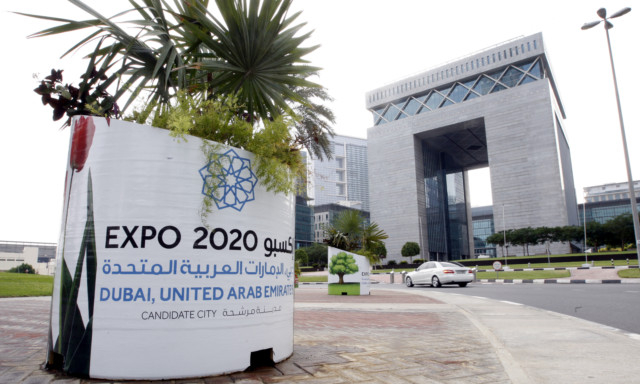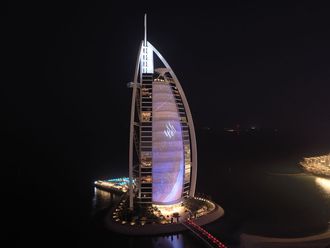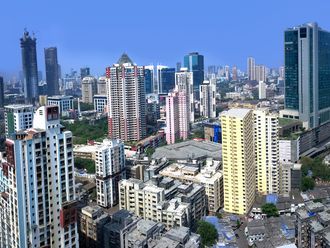
Dubai: Three days to go and the long wait will be finally over. By Wednesday evening, an announcement in Paris will inform the world and the UAE who gets to host the 2020Expo.
The World Exposition, considered to be the biggest fair, is held every five years for six months, when countries and their companies showcase their economic, scientific, technological and cultural trends.
The previous Expo in 2010 was held in Shanghai and the next one in 2015 will be hosted by the Italian city of Milan. Competing with Dubai for the 2020 Exposition are Russia’s Yekaterinburg, Turkey’s Izmir and Brazil’s Sao Paolo. Dubai, as a regional hub for trade, tourism, transportation and logistics, and a city with one of the most diverse international demographic profile stands a fairly good chance.
The local stock markets, in particular Dubai, that are still retail investor driven have been volatile in the past few weeks, to some degree, because of the expectations surrounding this event’s announcement. Since the end of last month until close of Thursday, the Dubai stock benchmark, DFM General Index, is down 1.06 per cent and the capital’s index losing a marginal 0.36 per cent.
While there is a view out there that the markets have already priced in the Expo—whether Dubai gets it or not—there are investors who have taken up positions on declines witnessed in the past couple of weeks in the hope that the city will win the bid and a rally will follow, which will enable them to sell off at higher profits. But with Dubai having had a strong run this year—in early November it was almost 80 per cent up and was among the top five best performing markets in the world—there are others who did not want to risk losses following a disappointment and so, have already booked profits.
So, how will the local markets react if Dubai wins? And, what if it doesn’t? What advice do fund managers have for investors? How should they read the market?
There seems largely to be a consensus on how the markets will behave on a Dubai win or a loss. If the emirate wins, there will be an immediate rally, followed by limited selloff. And if it loses, there will be an immediate retreat, but not a major one. The recovery of Dubai witnessed this year stands on strong fundamentals and with healthy profitability of several companies expected going forward, the markets will be on an upswing over the longer term.
“As for the short term, the market [DFM in this case] would react either positively or negatively to the announcement,” said Tariq Qaqish, head of asset management and fund manager at AlMal Capital, Dubai. “If we win we are going to see positive moves in the market. However, after the decent rally that we have seen since early this year, we will also see some profit taking within days [after the win].”
Saleem Khokhar, head of equities at National Bank of Abu Dhabi’s asset management group, expects the same: a bout of profit taking sooner or later, even if Dubai wins.
“Should Dubai win, shorter term retail investors will likely still take profits but the extent of any declines should be limited as the impact of Expo 2020 will add to the positive catalysts that are likely to drive UAE markets higher in the near to medium term,” he said.
. The National Investor’s (TNI) portfolio manager Sebastien Henin doesn’t rule out the DFM to reach new year highs in case of a win and that, echoing Khokhar, could act as a catalyst for further upward trend.
“It will bring more confidence to the market,” said Henin. “Some local and international investors might decide to increase their allocation to the market to benefit from the positive momentum, even if the dividends will take time to materialise.”
According to Amer Khan, director at Shuaa Asset Management, it’s difficult to say how much the markets will go up in case of a positive announcement, but obviously it’ll be a substantial confidence booster in an economy already on the mend as well as offering investors with longer term time horizon with some certainty on growth a few years out.
“During that market cycle retail investors can come in and out multiple times but that doesn’t alter the market’s overall trend,” he added.
In the event of the unwanted result, the market will see sell-offs, but the strength of the economy and the healthy performance of the companies will make the disappointment short-lived.
“If Dubai does not manage to get the Expo 2020 then I would expect a negative reaction from the equity markets as investors in general have positioned for a positive outcome,” said NBAD’s Khokhar.
“We should see profit booking over the short term,” said Khan.
“The economic impact [of a loss] will be marginal,” said Henin. “The economy is already very strong in the city state and all sectors are well oriented.”
The negative reaction would mainly come from the retail allocation of the market and depends on the amount of leverage they have, said Qaqish, adding that if the market drops, it will be an attractive entry point for institutional buyers.
Win or lose, medium to long-term attractive
But the chance of the market crashing is extremely remote, if not zero. Regardless of a win or non-win, the market looks attractive in terms of investment over the longer horizon, according to the fund managers.
“It will be great if they get Expo,” said Mark Mobius, executive chairman of Templeton Emerging Markets Group, last week in Dubai. “It gives them a target [and] it’s a very good rationale for increasing infrastructure spending, but I think it’s going to continue regardless. So, the Expo would be sort of icing on the cake, but it won’t necessarily bake the cake.”
Khan of Shuaa Asset Management believes that over the medium and long term the improving Dubai economy, translating to better earnings growth as we evidenced in the third quarter earnings season, should continue to drive valuations.
“And despite filling up handsomely for the year, these valuations have yet to fully reflect Dubai’s growth potential over the coming years, Expo or no Expo,” he added.
Short term catalysts, such as more institutional money flowing in when the MSCI upgrade eventually takes effect next year, the merger of Dubai and Abu Dhabi stock markets that will boost liquidity and transparency, continued announcement of infrastructure projects regardless of the Expo bid result are expected to boost the markets here, they said.
“So, the market looks interesting going forward and I don’t think as investors and asset managers we should just be relying on one theme, that is the Expo. With the various catalysts working in favour of the markets, investors should be focusing medium to long term rather than short term, said Qaqish.












